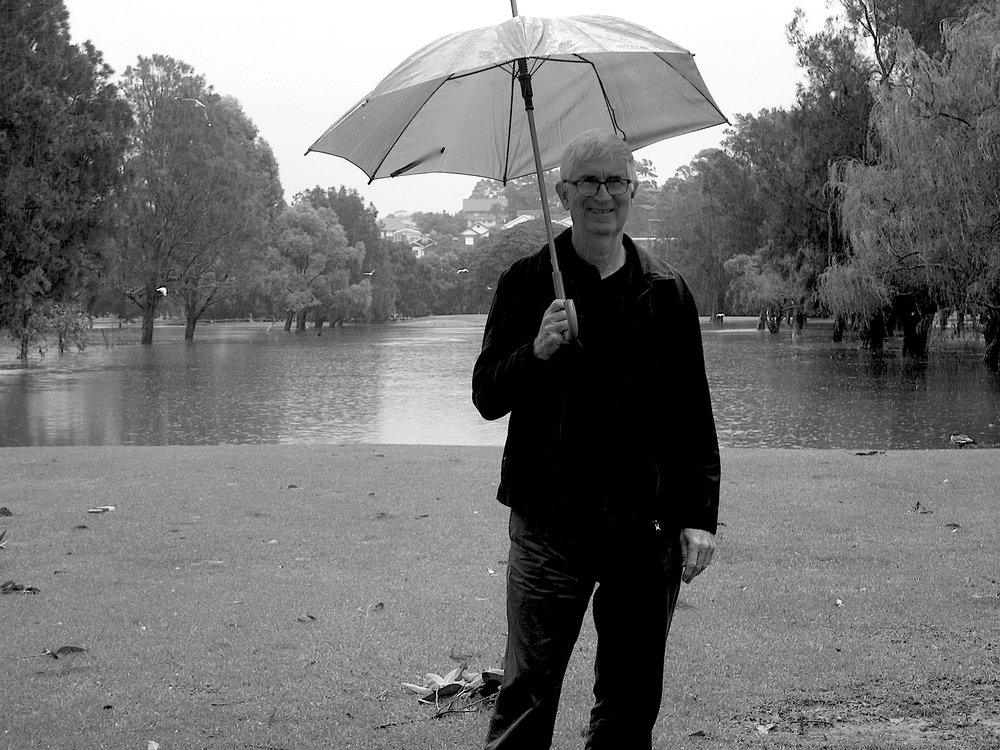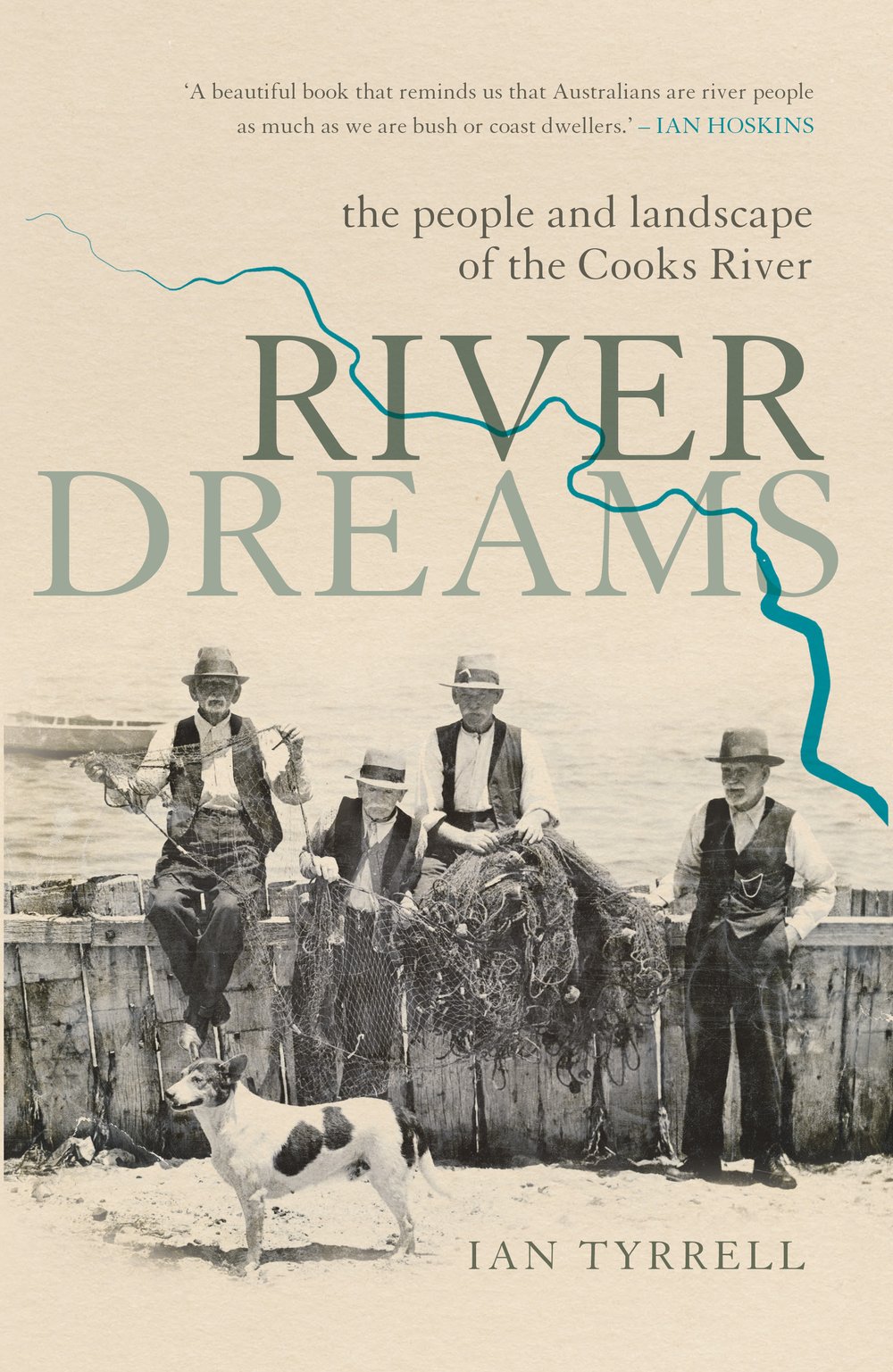Extract from the Preface to River Dreams by Ian Tyrrell
I grew up with rivers, though I did not live next to one. My mother’s aged relatives told me in stark and frightening terms about the power of the Brisbane River, which had in 1893 invaded the city’s central business district and swept away the bridge linking the south side of the river with the north. ‘Never build a house near the river’, I was sternly informed, as if the edict had the force of Matthew 7:24, later interpreted as ‘build on the rock, but not upon the sand’.
As an 18-year-old my daily trips to university took me across what locals parochially thought of as a mighty river. Coming home late at night, I watched the lights from the dredges that, in the deep darkness of the water, scooped up the gravel needed for Brisbane’s industries. It did not occur to me to question their appetite for stone. As an adult I encountered many a mightier river. I also came to love rivers of a much smaller scale. At Oxford I spent a year crossing the charming River Cherwell on the way to work and could stroll along the Thames Valley towpaths at my leisure.
I did not know of the Cooks River in the inner west of Sydney until the late 1980s. It was the moment of near-death for that particular watercourse, due to pollution – or so the newspaper headlines shouted. Since that time the Cooks River has become a personal obsession. This book is the result of my intellectual and emotional entanglement with rivers in general, and this one in particular.
The Cooks is a peculiar river. It could never ‘stand’ for all rivers any more than others could. Each has an individual history, and that is part of the attraction. A river has a beginning and an end, and its course resembles a life story in its twists and turns. Reconnoitring a river – as Henry David Thoreau realised of the Concord and the Merrimack – could be a vehicle to consider all manner of things historical and philosophical, or to tell the story of a journey. The river considered as journey fits this geographical feature into the most important human way of seeing the world, the narrative.
Even as the Cooks River story is unique, it is indeed every river in the sense that humans have manipulated rivers for thousands of years, and changed them in the process. The polluted and altered state of the Cooks River is merely an extreme case of the fate encountered by so many rivers, and perhaps eventually all – to serve humankind. If it is not all rivers in microcosm, it at least provides a template for the engagement of colonial settler society and its successor nation with the strange and wonderful environment of Australia.
But the Cooks River was not very good at bending to human will. I toyed with the idea of calling this book The River that Died of Shame, or The Cooks River: An Unnatural History. Such titles capture important truths, but not the river’s essence. That lies in the visions humans had for it, and for all nature – expectations that repeatedly made it a river of dreams, albeit ones repeatedly dashed or modified. For the river’s history is a story of a human interaction with ‘nature’ that is fundamentally eco-historical. That is, its history is partly ecological, and its ecology is partly historical. It is not a story of a fall from Eden. Such a narrative of unrelenting decline does not take account of the Aboriginal occupation, or successive attempts to rectify the damage humans have done. Rather, the ironies of river ‘improvement’ present a mixed result of trial and error, success (in human terms) and failure. It is both the river of dreams, and, with its tensions between culture and nature, the river of unanticipated and hybrid results.
Click here to see a virtual simulation of the Cooks River as it was prior to European colonisation, created by the Cooks River Alliance along with the Traditional Ecological Knowledge Project.

